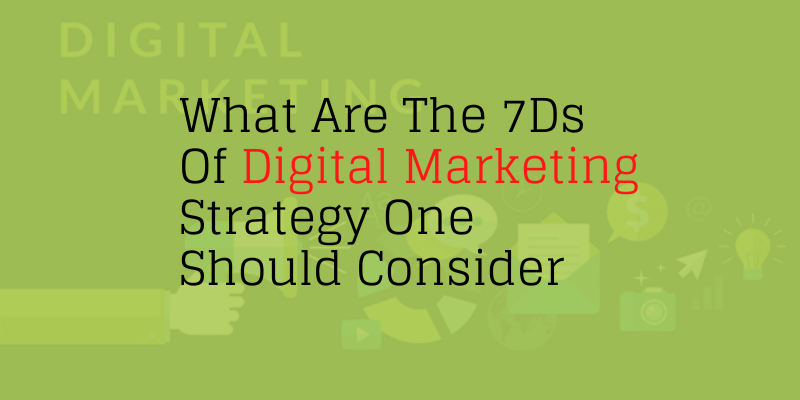What Are The 7Ds Of Digital Marketing Strategy One Should Consider?
Let us consider which digital audience interactions we need to comprehend and control through marketing communications to define the scope of opportunity when employing a strategic approach to digital marketing. Today's digital marketing involves managing a more comprehensive range of audience interactions than just a business website or email marketing. Utilising the remaining "7Ds of managing digital marketing interactions," depicted in the visual below, is required. Join Digital Marketing Training in Chennai at FITA Academy. to learn more about digital marketing.
1)Digital Goals: Examine the company or brand's goals for employing digital marketing and the extent to which it is succeeding. Outlining the necessary adjustments to business and revenue models for current businesses, along with the importance of always-on marketing and campaign investments, it is essential to consider how digital marketing may assist the company in competing.
2)Digital Audience: To deliver more relevant content and experiences to various target segments targeted at increasing interactions and achieving corporate objectives within the competitive online marketplace, it is essential to understand the traits, behaviours, and preferences of the online audience.
3)Digital Devices: Understanding how customers interact with brands during the purchasing process utilising a variety of connected devices such as smart speakers, gaming consoles, TVs, laptops, desktop computers, smartphones, and tablets as part of the Internet of Things (IoT).To learn more about digital devices, join Digital Marketing Online Course.
4)Digital Platforms: Determining the priority for messages and the relative relevance of interactions on the main "digital platforms" or online services, frequently referred to by the abbreviation "FAMGA". FAMGA stands for FacebookTM, AmazonTM, Microsoft (which owns LinkedInTM), GoogleTM (whose parent company AlphabetTM owns YouTubeTM), and AppleTV. Facebook owns Instagram and WhatsAppTM. The operating systems, browsers, apps, social networks, and search engines used to facilitate digital interactions between companies and customers are partly developed by these companies.
5)Digital Media: Prioritizing the usage of various communication channels, such as advertising, email and message, search engines, and social networks, which we'll present in this chapter, is one way to reach and engage people.
6)Digital Data: Most nations now require that the structuring and use of the data that businesses gather about the demographics of their customers and how they engage with them be safeguarded by law.
7)Digital Technology: Websites and interactive mobile apps are made by choosing marketing technology or martech. Technology is also utilised to support marketing campaign operations that take the form of digital marketing channel planning, execution, optimisation, insight, and reporting.
Conclusion:
I hope in this article, you have gained some insight into the seven strategies one should consider in digital marketing. To learn more about digital marketing, join Digital Marketing Training in Bangalore. Digital marketing has been changing depending on the latest technology changes that take place in this fast-changing world. It is vital to stay updated to be at the top of the digital marketing field.
